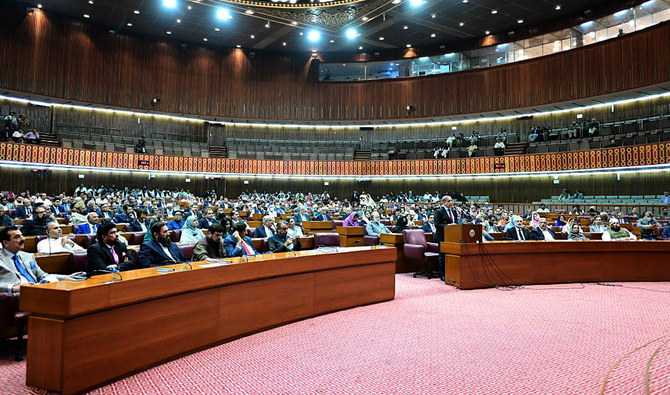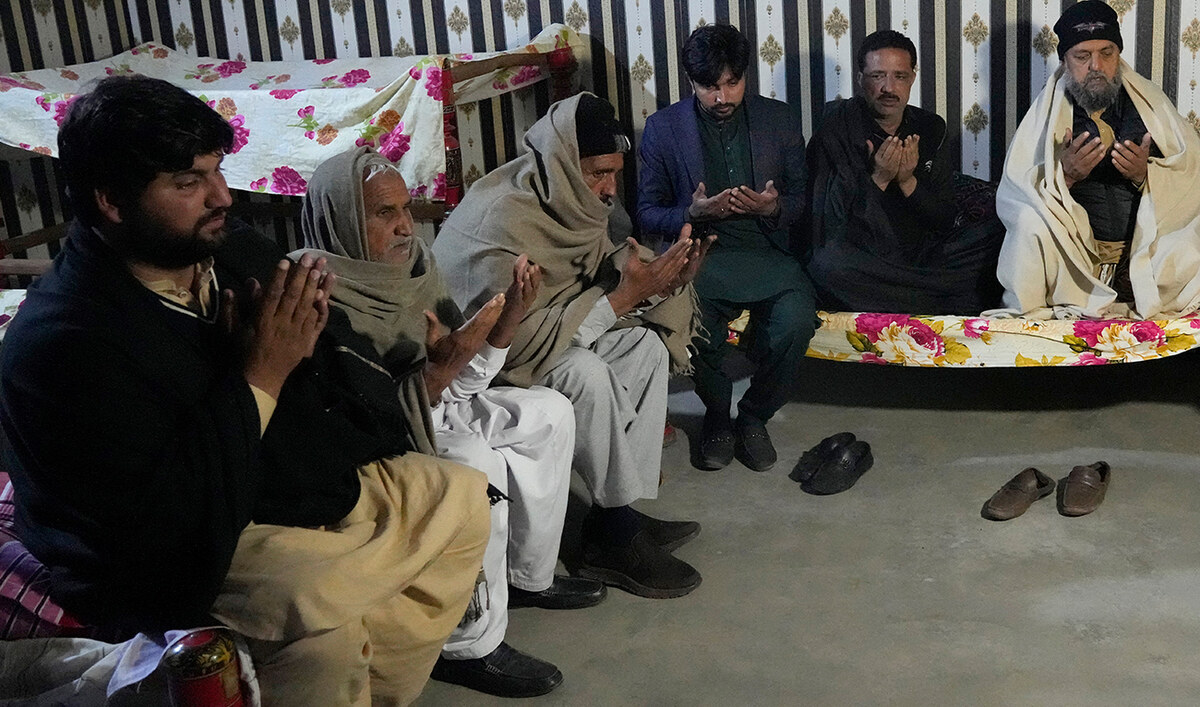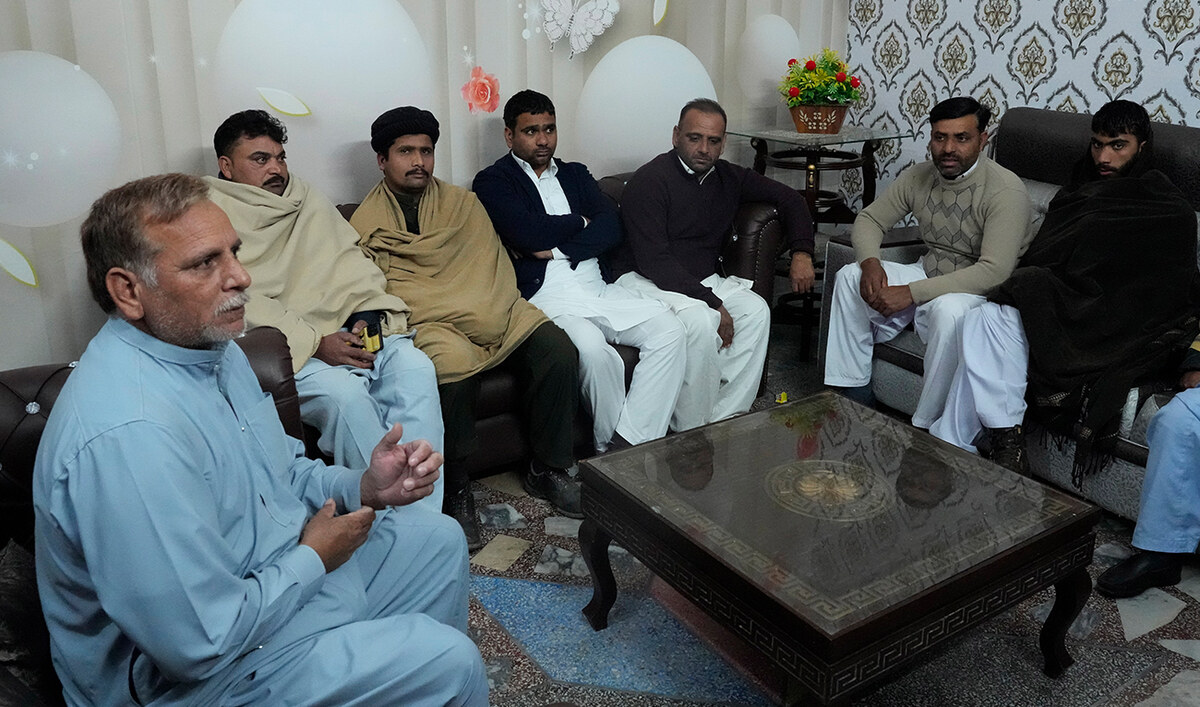ISLAMABAD: Finance Minister Senator Ishaq Dar on Monday tabled a bill in Pakistan’s parliament seeking the release of funds to hold elections in Punjab and Khyber Pakhtunkhwa (KP) provinces, after a days-long standoff between the government and the judiciary on the issue.
In a judgment issued last week, the Supreme Court of Pakistan ordered elections in Pakistan’s most prosperous and populous Punjab province on May 14. The apex court said a decision by the Election Commission of Pakistan (ECP) to delay polls to October 8 from April 30 owing to security and lack of funding reasons was “unconstitutional.”
The top court directed the federal government to release Rs21 billion ($74 million) in funds to the ECP by April 10 so that it could conduct the polls, directing the election regulator to submit a report on it by April 11.
The government of PM Shehbaz Sharif, which says it is not economically viable to hold polling for the provincial assemblies and national assembly at different times, has refused to accept the verdict. It also maintains the three judges who announced the verdict are “biased” against the ruling coalition, leading to a constitutional crisis in the South Asian country already suffering from economic woes.
Sharif’s party has called upon the top judge to resign over what it says were “flagrant violations of the law and the constitution.”
The controversy was triggered when ex-PM Imran Khan’s party and its ally dissolved provincial assemblies in Punjab and KP in January. The move was a bid to force the government to hold early national elections, as Pakistan has historically held voting for provincial and national seats on the same day.
“It is a constitutional responsibility to hold elections in the country,” Dar said, addressing parliamentarians on the floor of the National Assembly. “But it is important to simultaneously hold the polls across the country under caretaker governments.”
The finance minister also contended that national elections on the same day would help save money and ensure polls are held in a free, fair and transparent manner.
According to a copy of the bill seen by Arab News — tabled separately in both houses of the parliament, the National Assembly and the Senate — the funds required for conducting elections in both provinces shall be “an expenditure charged upon the Federal Consolidated Fund.”
According to the bill, the fund comprises all revenues received by the federal government, all loans raised by it and all money received as repayment of any loan.
“In order to ensure general elections in the provincial assemblies of Punjab and Khyber Pakhtunkhwa, it is necessary to make a law under the constitution for the release of sums as charge expenditure upon the Federal Consolidated fund,” the bill reads.
The bill also states that the proposed law would stand repealed once elections in both provinces are held without holding general elections to the National Assembly and the provincial assemblies of Balochistan and Sindh.
Citing Pakistan’s precarious economic and deteriorating security situation, Dar said holding elections on two provincial assemblies in Pakistan is not in the country’s interest. He also termed the apex court judgment on the polls as a “minority verdict.”
Speaker of the National Assembly, Raja Pervaiz Ashraf, later referred the bill to the relevant standing committee for further debate and consideration. He subsequently adjourned the session till Thursday afternoon.
Meanwhile, the ECP wrote to the parliament on Monday, urging it to pass a legislation empowering the authority to announce a date for general elections and allow the election regulator to make alterations in the election program or issue a fresh election program with new polling dates.
“The commission, under the Constitution, is the sole arbiter to decide as to whether conducive circumstances exist to conduct the elections or not. This mandate is not subordinate to any authority,” reads the letter written by Chief Election Commissioner Sikandar Sultan Raja to the National Assembly speaker and Senate chairman.




















